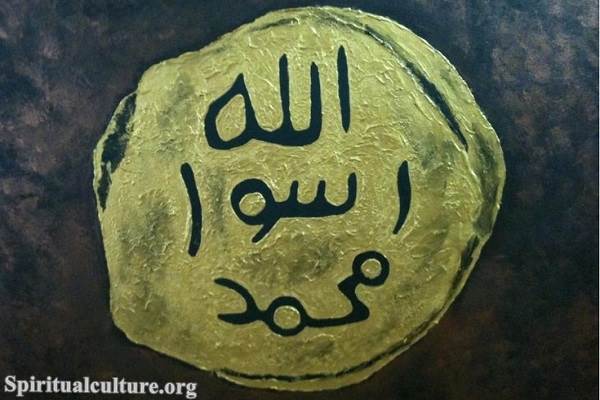In every breath of creation and every act of divine will, Islam teaches that angels are present — silent yet powerful witnesses to the cosmic order. They are not symbols, but real, living beings who do not sleep, tire, or disobey. Their presence is central to the unseen world (al-ghayb), which the Qur’an tells us is as real as the world we touch.
But what exactly is the role of angels in Islamic theology? Why are they important, and what do they teach us about our relationship with God, with creation, and with our own souls?
This article, written as Spiritual Culture, invites you to discover the deep spiritual reality of angels in Islam — not as myth, but as meaning; not as fantasy, but as faith. We will explore who the angels are, what their roles entail, and how belief in them shapes the consciousness of the believer.
Belief in Angels as a Pillar of Faith
Angels and the Core of Islamic Creed
Among the six pillars of faith (Iman) in Islam, belief in angels (mala'ika) stands as foundational. A Muslim is not considered a true believer without acknowledging their existence. The Qur’an states clearly:
“The Messenger has believed in what was revealed to him from his Lord, and [so have] the believers… They believe in Allah, His angels, His books, and His messengers.”
(Qur’an 2:285)
This belief is not optional. It is an essential framework of how Muslims view the universe: that behind every event lies a divine orchestration in which angels play their part.
Angels as Real Beings — Not Symbolic
Islamic theology rejects the idea that angels are metaphorical. They are created beings, made from light (nur), unlike jinn (created from smokeless fire) or humans (created from clay). They are spiritual yet real — unseen yet active.
They have no free will. Unlike humans, angels do not sin or rebel:
“[They] do not disobey Allah in what He commands them but do what they are commanded.”
(Qur’an 66:6)
Their obedience is absolute. Their nature is pure. And their role? Deeply purposeful.
The Chief Roles of Angels in Islam
1. Messengers of Revelation
Perhaps the most recognized angel in Islam is Jibrīl (Gabriel), the archangel of revelation. He is the one who conveyed God’s message to the prophets, including the final revelation to Prophet Muhammad (peace be upon him).
“Say, whoever is an enemy to Gabriel—it is [none but] he who has brought the Qur’an down upon your heart by permission of Allah.”
(Qur’an 2:97)
Without Jibrīl, there would be no Qur’an. His role was not just delivery but protection of the divine word. This angel, unseen to most, shaped the visible course of history.
2. Recorders of Human Deeds
Every human, according to Islamic teaching, is accompanied by two angels: one on the right shoulder recording good deeds, and one on the left recording sins. These are called Kirāman Kātibīn:
“And indeed, [appointed] over you are keepers, noble and recording; they know whatever you do.”
(Qur’an 82:10–12)
This is more than surveillance — it is a reminder of accountability. Angels witness your life not to punish, but to reflect it back on the Day of Judgment.
3. Guardians and Protectors
The Qur’an mentions guardian angels who protect believers by Allah’s command:
“For each one are successive [angels] before and behind him who protect him by the decree of Allah.”
(Qur’an 13:11)
These angels are unseen shields — guarding not just from physical harm but spiritual misguidance. Every step, every trial, they are near.
4. Carriers of the Throne and Worshipers of God
Some angels carry the Throne of Allah (Arsh) and continually glorify Him:
“Those [angels] who carry the Throne and those around it exalt [Allah] with praise of their Lord and believe in Him…”
(Qur’an 40:7)
Others fill the heavens in ranks, bowing, prostrating, and praising God. Their purpose is pure worship.
5. Agents of Death and the Afterlife
Death, in Islam, is not a process but a moment witnessed and managed by angels. The Angel of Death, often referred to as Malak al-Mawt, is assigned to extract the soul.
“Say, the Angel of Death will take you who has been entrusted with you. Then to your Lord you will be returned.”
(Qur’an 32:11)
At death, two angels — Munkar and Nakīr — come to question the soul in the grave. Their questions are simple, but their implications eternal:
- Who is your Lord?
- What is your religion?
- Who is your prophet?
Angels and the Unseen Realm (Al-Ghayb)
The Invisible Tapestry of Creation
Angels operate in a realm beyond sensory perception. The Qur’an often invites humans to believe in al-ghayb — the unseen. This includes God, the afterlife, and the angels.
“This is the Book about which there is no doubt, a guidance for those conscious of Allah — who believe in the unseen…”
(Qur’an 2:2–3)
Believing in angels is thus an act of spiritual humility. It is to accept that not all reality is measurable. Some truth must be trusted, not touched.
Why the Unseen Matters
Modern life often glorifies the visible. Yet, the Islamic tradition affirms that what is hidden may be more real than what is seen. Angels remind us that God’s will flows constantly, even when we cannot see how.
Theological Debates and Clarifications
Are Angels Gendered?
Islamic scholars overwhelmingly agree that angels have no gender. They do not marry, reproduce, or have desires. They are created beings, not biological ones.
This corrects a misunderstanding from pre-Islamic pagan traditions where angels were viewed as the “daughters of God” — an idea explicitly rejected in the Qur’an:
“And they have made the angels, who are servants of the Most Merciful, females. Did they witness their creation?”
(Qur’an 43:19)
Can Angels Disobey?
No. Angels in Islam do not have free will like humans or jinn. This distinguishes them clearly from beings like Iblis (Satan), who was not an angel but a jinn who disobeyed.
“He was of the jinn and departed from the command of his Lord.”
(Qur’an 18:50)
Living with the Awareness of Angels
Daily Life Under Watch
A Muslim aware of angels becomes more mindful. Every word, every glance, every intention — all are being noted. But this is not surveillance born of fear. It is a spiritual companionship that calls us toward integrity.
Prophet Muhammad ﷺ said:
“Indeed, there is not one of you but he has been assigned a companion from the angels and a companion from the jinn.”
(Sahih Muslim)
Inviting Angels into the Home
Traditions speak of angels entering homes where there is purity, remembrance of God, and truth — and avoiding places of obscenity, images of living beings, or dishonesty.
“The angels do not enter a house in which there is a dog or an image.”
(Sahih al-Bukhari)
Angels, in this sense, are not just cosmic forces but guests of the soul — drawn to sincerity, repelled by sin.
Reflect and Reimagine
What does this mean for us?
It means we are never truly alone. Whether in sorrow or joy, in confusion or clarity, angels are with us — not to rule, but to serve the divine order.
To believe in angels is to re-enchant the world. It is to understand that life is not just what meets the eye, but what transcends the eye. That justice is written. That worship echoes beyond the sky. That death is not the end but a transition witnessed by beings created from light.
Spiritual Culture invites you to reflect:
- What would your life look like if you lived as though angels watched over it?
- How would your soul speak if it knew its words were recorded by light?
- What purity would you seek if your home were a place angels longed to enter?
To walk with angels is to walk humbly — knowing the Divine is nearer than breath, and His servants are always near.
Let this truth elevate you — from the ordinary to the sacred, from the visible to the unseen.



